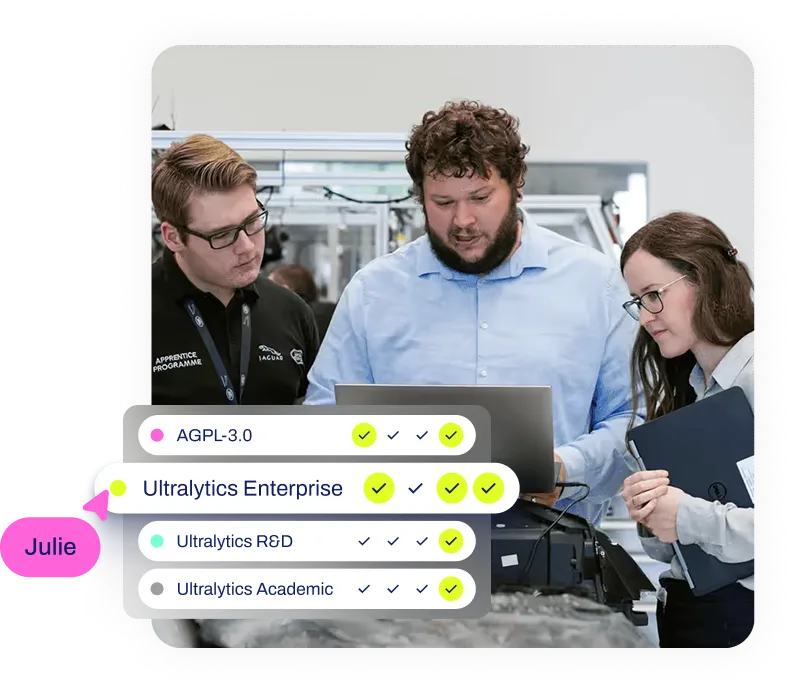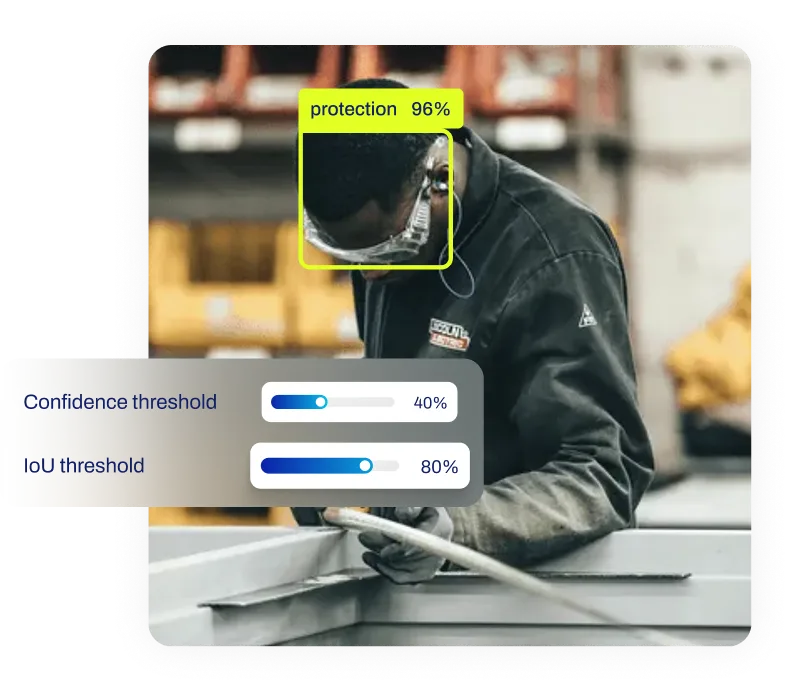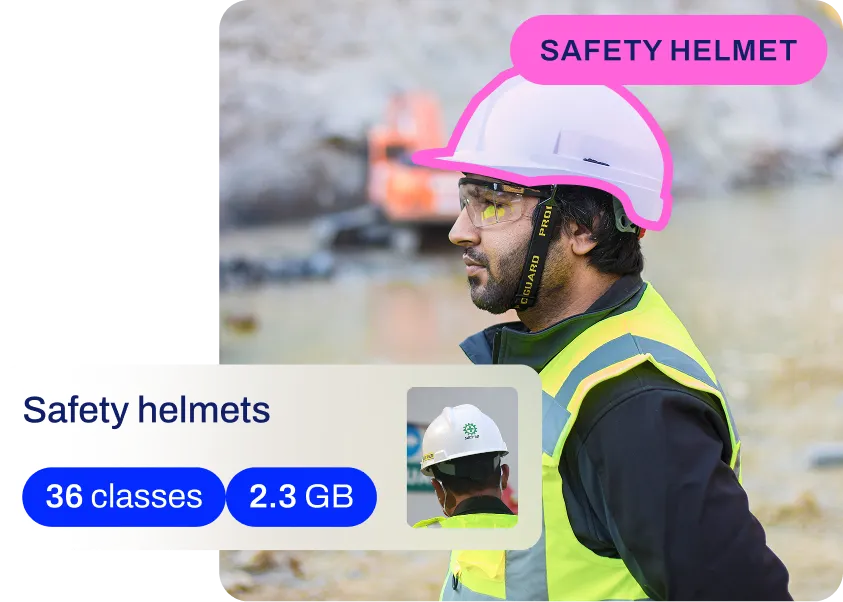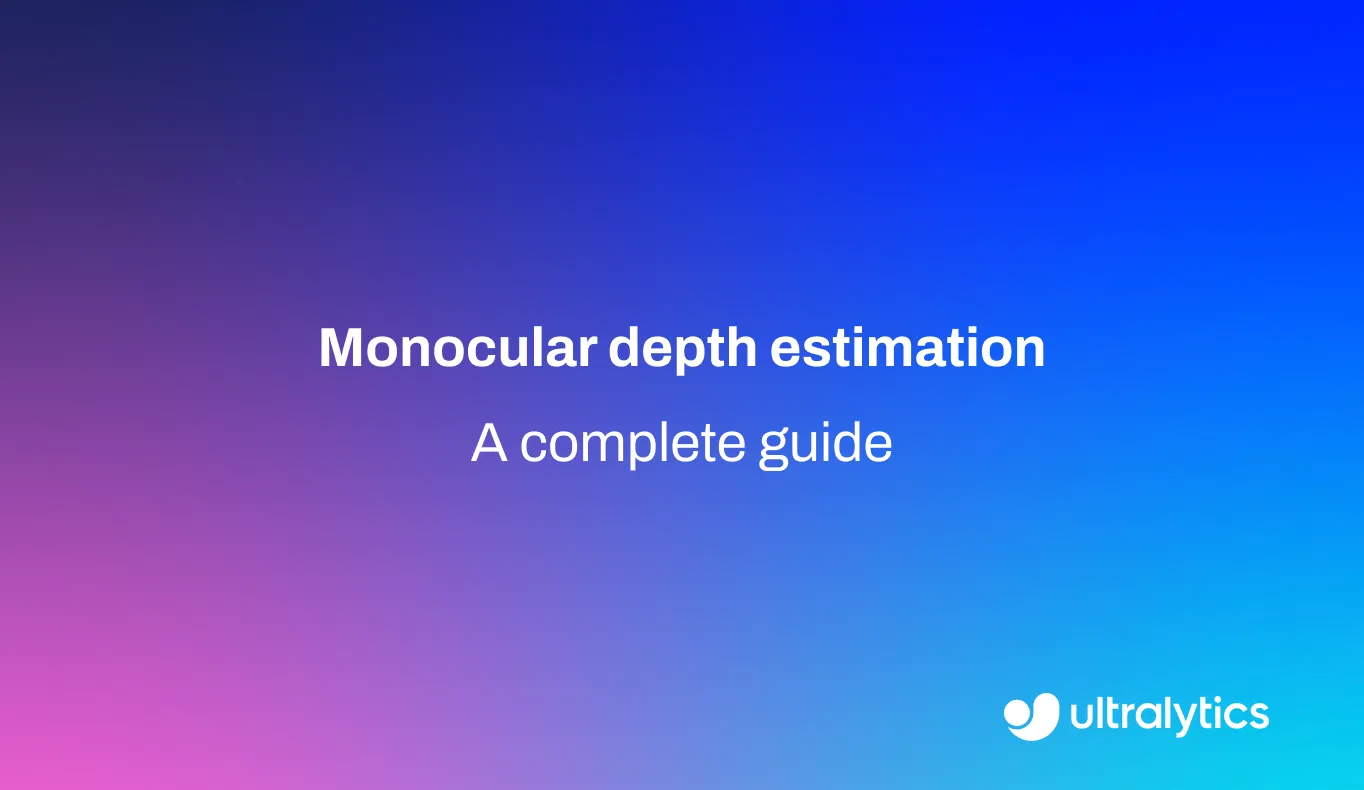Bilişsel Hesaplama
Bilişsel bilgi işlemenin insan mantığını nasıl simüle ettiğini keşfedin. Akıllı, kendi kendine öğrenen sistemler oluşturmak için Ultralytics algılama katmanı olarak nasıl kullanacağınızı öğrenin.
Bilişsel bilgi işlem, bilgisayarlı bir modelde insan düşünce süreçlerinin simülasyonunu ifade eder. Bu,
veri madenciliği, örüntü tanıma ve doğal dil işleme (NLP) kullanarak insan beyninin çalışma şeklini taklit eden
kendi kendine öğrenen sistemleri içerir. Amaç sadece verileri işlemek değil, sürekli insan denetimi olmadan sorunları çözebilen otomatik sistemler
oluşturmaktır. Katı mantık ağaçlarına dayanan geleneksel programlı hesaplamadan farklı olarak,
bilişsel hesaplama sistemleri olasılıksaldır; yapılandırılmamış verilerden hipotezler, mantıklı argümanlar ve
öneriler üretir ve insanların karmaşık ortamlarda daha iyi kararlar almasına yardımcı olur.
Bilişsel Bilgi İşlem ve Yapay Genel Zeka (AGI)
Bilişsel bilgi işlemenin özel kapsamını anlamak için, onu ilgili yapay zeka kavramlarından ayırmak önemlidir.
-
Bilişsel Bilgi İşlem ve
Yapay Genel Zeka (AGI):
Bilişsel bilgi işlem insan mantığını taklit ederken, genellikle belirli bir alana özeldir. Hukuk için eğitilmiş bir bilişsel sistem
cerrahi operasyon yapamaz. AGI veya "Güçlü AI", tıpkı bir insan gibi
herhangi bir soruna zeka uygulayabilme yeteneğine sahip teorik bir makineyi ifade eder. Bilişsel bilgi işlem, günümüzde kullanılabilen pratik bir uygulamadır
, oysa AGI, OpenAI gibi kuruluşların gelecekteki araştırma hedefleri arasında yer almaktadır
.
-
Bilişsel Hesaplama ve İstatistiksel Yapay Zeka:
Geleneksel istatistiksel yapay zeka, belirli görevlerde (sınıflandırma gibi) yüksek doğruluk elde etmek için matematiksel optimizasyona odaklanır.
Bilişsel hesaplama ise daha geniş bir yaklaşım benimser, akıl yürütme, hipotez oluşturma ve
kanıta dayalı açıklamayı vurgular ve genellikle
bilgi grafiklerini entegre ederek kavramlar arasındaki ilişkileri
haritalandırır.
Görsel Yapay Zeka ile Bilişsel Algıyı Uygulama
Görsel algı, genellikle bilişsel süreçlerin ilk adımıdır. Bir sistem bir ortam hakkında akıl yürütmeden önce,
onu algılamalıdır. YOLO26 gibi modern görme modelleri, yapılandırılmamış video verilerinden yapılandırılmış nesneleri
çıkaran duyusal girdi katmanı görevi görür. Bu yapılandırılmış veriler daha sonra karar vermek için bir akıl yürütme motoruna aktarılır
.
Aşağıdaki örnekte, aşağıdakilerin nasıl kullanılacağı gösterilmektedir ultralytics algılama katmanı olarak işlev gören paket,
bilişsel sistemin track gereken nesneleri tanımlar.
from ultralytics import YOLO
# Load the YOLO26 model to serve as the visual perception engine
model = YOLO("yolo26n.pt")
# Perform inference on an image to identify objects in the environment
results = model("https://ultralytics.com/images/bus.jpg")
# Extract detected classes to feed into a cognitive reasoning system
for r in results:
# Print the class names (e.g., 'person', 'bus') found in the scene
for c in r.boxes.cls:
print(model.names[int(c)])
Bilişsel Zekayı Mümkün Kılan Teknolojiler
Bilişsel bir ekosistem oluşturmak, uyum içinde çalışan bir dizi ileri teknoloji gerektirir.
-
Derin Öğrenme (DL): Sinir
ağları, görüntüler ve ses gibi yapılandırılmamış verileri işlemek için gerekli olan örüntü tanıma yeteneklerini sağlar
.
-
Büyük Veri Analitiği: Yüksek hacimli, yüksek hızlı veri akışlarını işleme yeteneği çok önemlidir.
Apache Spark gibi araçlar genellikle bilişsel modelleri besleyen veri boru hatlarını yönetmek için kullanılır.
-
Bulut Altyapısı:
Google AI ve
Microsoft Cognitive Services gibi platformlar,
bu yoğun iş yüklerini çalıştırmak için gereken ölçeklenebilir bilgi işlem gücünü sağlar.
-
Akıl Yürütme Motorları: Basit sınıflandırmanın ötesinde, bu bileşenler verilere mantık kuralları ve
olasılıksal akıl yürütme uygular. Bu genellikle,
bir kararın neden alındığını açıklamak için
sembolik yapay zeka tekniklerini içerir.
Gerçek Dünya Uygulamaları
Bilişsel bilgi işlem, insan uzmanlığını makine hızı ve ölçeği ile güçlendirerek endüstrileri dönüştürüyor.
-
Sağlık Teşhisi:
Tıbbi görüntü analizinde, bilişsel sistemler
hasta kayıtlarını, tıbbi dergileri ve teşhis görüntülerini alır. Bu büyük miktardaki
çok modlu öğrenme verisini işleyerek, sistem
olası teşhisler hakkında hipotezler oluşturabilir ve onkologlara tedavi planları önerebilir, böylece teşhis hatalarını azaltır ve
bakımı kişiselleştirir.
-
Akıllı Tarım: Bilişsel sistemler, uydu görüntülerini,
hava durumu modellerini ve toprak sensörü verilerini analiz ederek hassas tarımı destekler. Tarımda
yapay zeka kullanan çözümler, mahsulün
sağlığı hakkında mantıklı çıkarımlarda bulunabilir, hastalık salgınlarını yayılmadan önce tahmin edebilir ve sulama sistemlerini otomatik olarak ayarlayarak suyu korurken
verimi optimize edebilir.
Ultralytics gibi modellerden gelen duyusal girdileri gelişmiş akıl yürütme yetenekleriyle entegre ederek,
bilişsel bilgi işlem, yalnızca hesaplama yapmakla kalmayıp aynı zamanda anlama yeteneğine de sahip makinelerin önünü açıyor. Bu karmaşık modellerin yaşam döngüsünün yönetimi,
farklı ortamlarda eğitim, açıklama ve
dağıtımı kolaylaştıran Ultralytics aracılığıyla
kolaylaştırılıyor.










.webp)